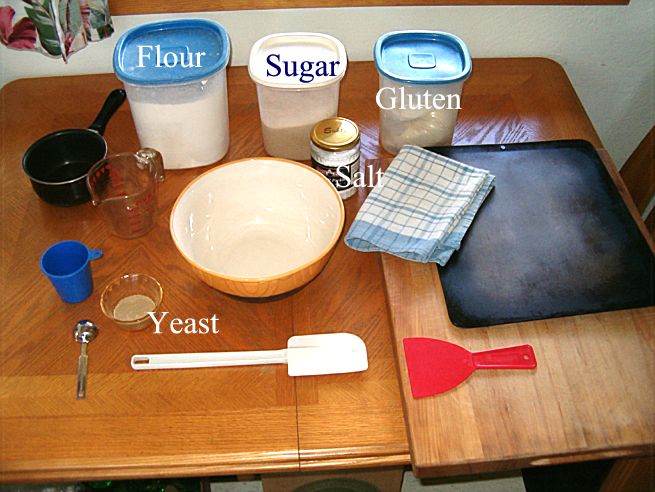Home Made Bread
There are many different ways to go about baking bread in a home oven. This is just one of those methods. It works, it’s easy and uses common kitchen utensils and equipment.
| Hardware: | Ingredients: |
| Small pyrex dish | Yeast – 2 Tbs |
| Tablespoon | Flour – 3-4 cups |
| Mixing Bowl | Sugar – 2 Tbs |
| Spatula | Salt – 1 Tbs |
| Pyrex measuring cup | Gluten – 2 Tbs (optional) |
| One cup measure | Water – 2 cups |
| Sauce pan | Margarine – for eating on the bread! |
| Cutting board or clean counter | |
| Clean dish towel | |
| Plastic scraper | |
| Cookie sheet |
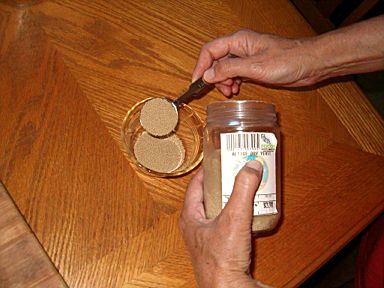
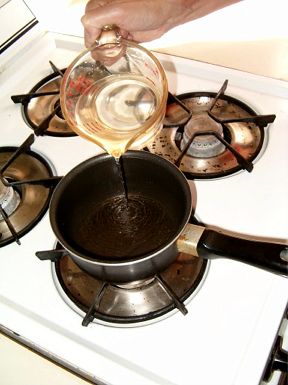
Measure 2 tablespoons of yeast into the small Pyrex dish. Using the Pyrex measuring cup, put 2 cups of water into the small saucepan and heat to about 85 degrees (very warm but not unbearably hot to the touch
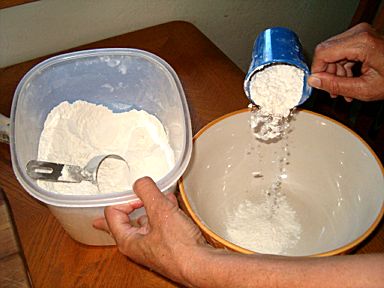
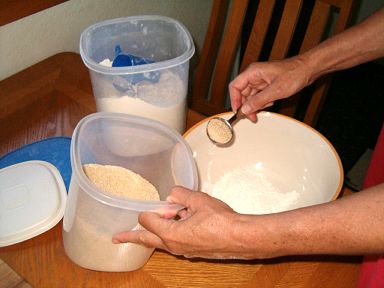
Meanwhile, measure 4 cups of flour into the mixing bowl. Put a little sugar (1/4 to 1/2 teaspoon) into the Pyrex measuring cup and measure another two tablespoons of sugar into the mixing bowl with the flour.
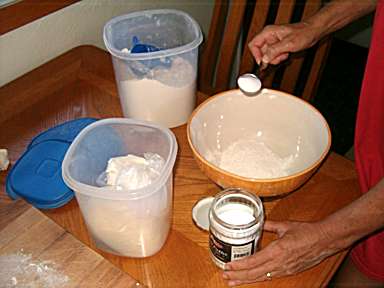
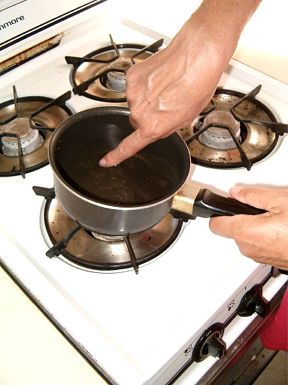
Add 2 tablespoons of sugar, 1 tablespoon of salt and two tablespoons of gluten (optional) to the flour. Remove the water from the heat and test for temperature. It should be about 85 degrees and feel uncomfortably warm, not hot or scalding to your finger. If the water is too hot, give it a few minutes to cool down. You can add some cold water but only use two cups of water unless you are prepared to make a bigger batch of bread.
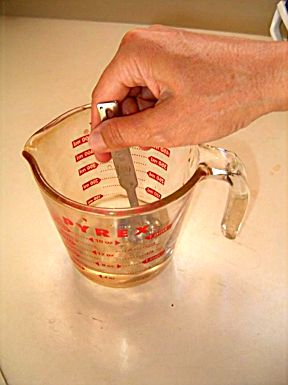
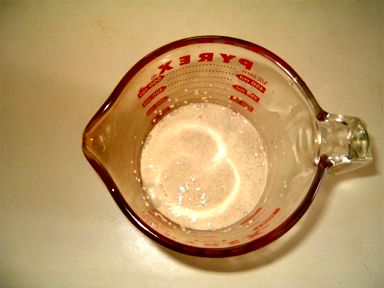
Pour 1/2 cup of water into the measuring cup with the sugar and mix well. Add the yeast and stir with the tablespoon for a few seconds until it is well mixed. Fill the pyrex dish with water and place in the oven.
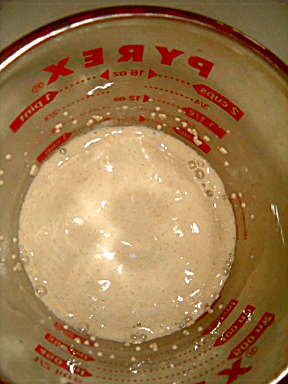
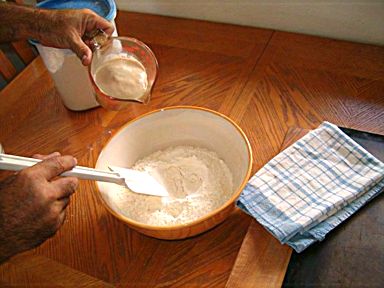
Using the spatula, stir the flour mixture and make a hole in the middle while waiting for the yeast mixture to double in size (to one cup). When it has doubled or ‘proofed’, pour the yeast mixture into the flour.
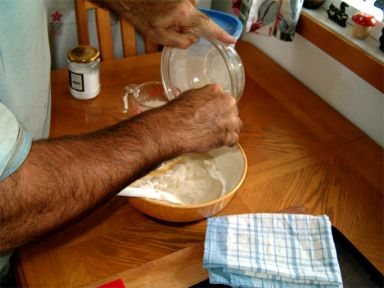
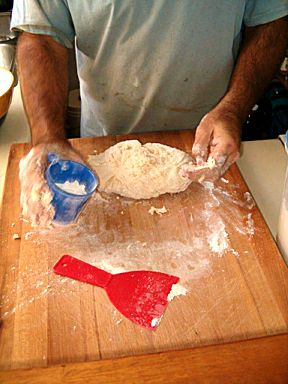
Rinse out the yeast cup into the flour mixture using the remaining warm water. Mix well using the spatula and adding flour as needed. When dough willingly leaves the sides of the bowl, flour the board or counter and scrape all the dough out of the bowl onto the board.
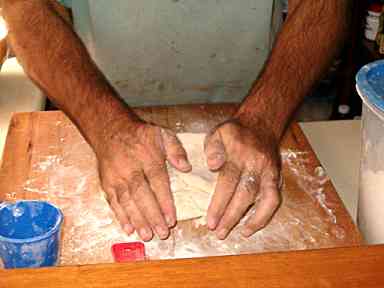
Let it rest and knead it for between 5 and 10 minutes, taking care not to add too much more flour.
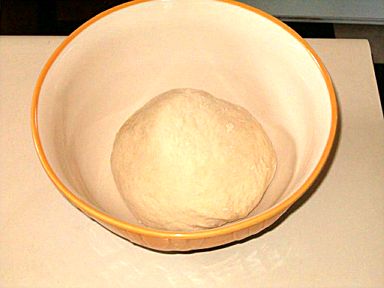
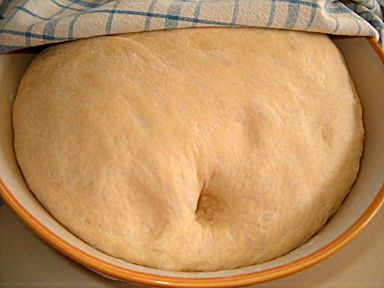
When the dough feels smooth and slightly springy, put it back into the bowl. You won’t have to wash the bowl if you scraped the sides free of dough with the spatula earlier. Let rise until double under a clean towel (about 45 minutes) You can test the dough to see if it has risen enough by pushing your finger into it. If the indentation remains as shown in the picture, the dough is sufficiently risen. If the indentation begins filling in immediately, it needs to rise longer.
While you wait for the dough to rise, scrape and then wipe the cutting board clean and rinse up the measuring cups, spatula and measuring spoon.
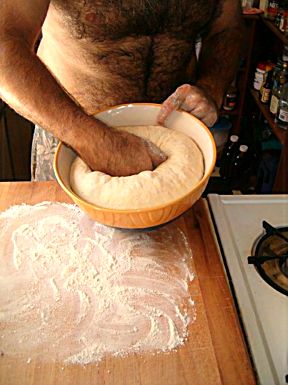
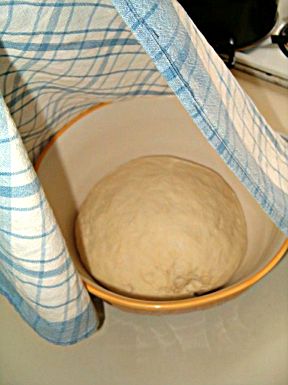
Punch down the dough and turn onto the floured cutting board. Knead for a minute to get all the air out and return to the bowl to rise again.
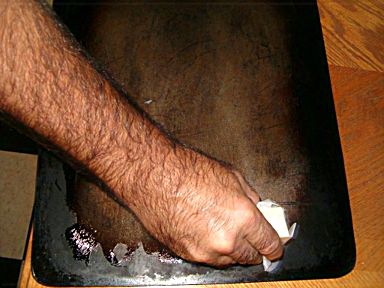
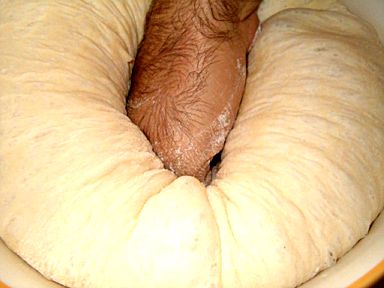
When dough has risen again, rub margarine on the cookie sheet or line it with parchment paper.Punch down the dough and turn onto floured cutting board or counter.
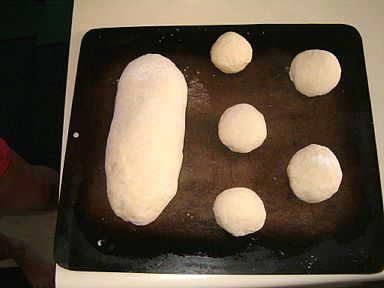
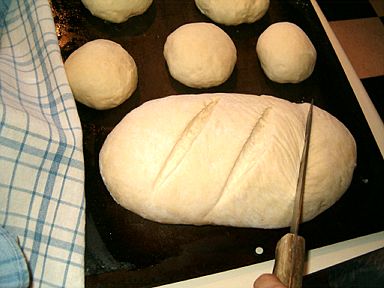
Knead into one loaf the length of the cookie sheet. Place seam-side down on the cookie sheet and cover with the cloth. 15 minutes after making the loaf, turn the oven on to 400 degrees Fahrenheit, 200 Celcius. 15 minutes later, score the loaf with a sharp knife and place in oven.
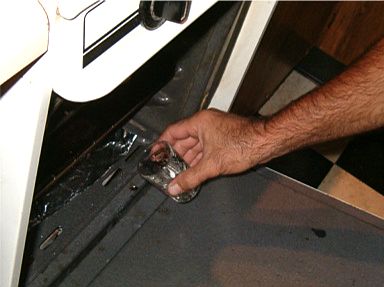
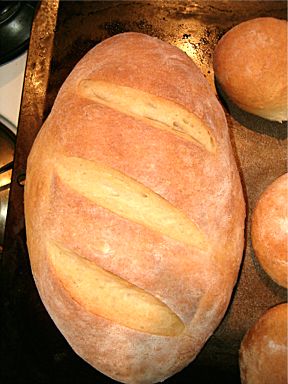
Bake at 400 degrees Fahrenheit, 200 Celcius for 30 minutes. Occasionally sprinkle a little water into the oven during baking to make steam and so develop a thicker crust. Test for doneness by thumping the bottom of the load with your fingers and listening to the sound it makes. If the bread is baked it will sound hollow, a bit like a drum. The top should be browned.
For a chewier crust, leave out the water in the oven and brush the dough with milk before and during baking. For a soft sandwich bread crust, leave out the water and brush the finished loaves with margarine.
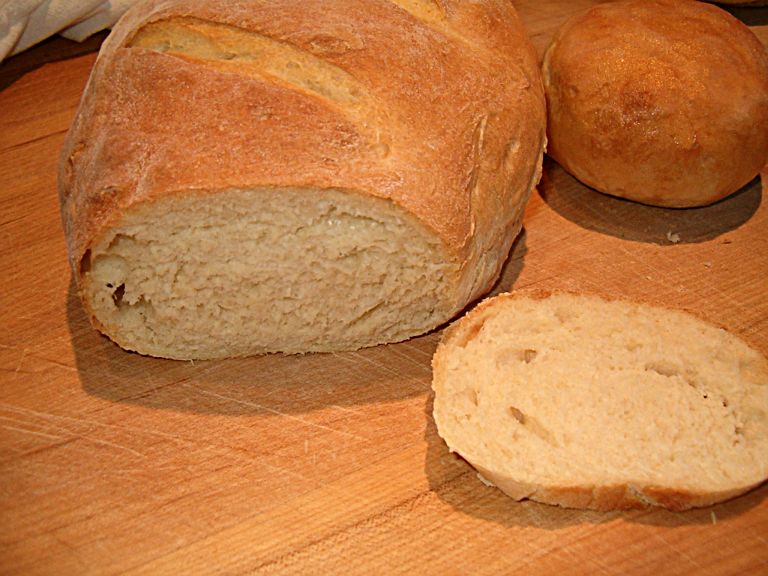
Cool completely before slicing. Enjoy and don’t forget to share!
SPONGE METHOD: Another way to proof your yeast while adding flavor
Put 2 tablespoons of yeast into your mixing bowl and mix in a cup of flour. Warm 2 cups of water to about 85 degrees and stir into the yeast/flour mixture. Let sit for up to 4 hours on the counter or overnight in the refrigerator before adding sugar, salt and the rest of the flour.
